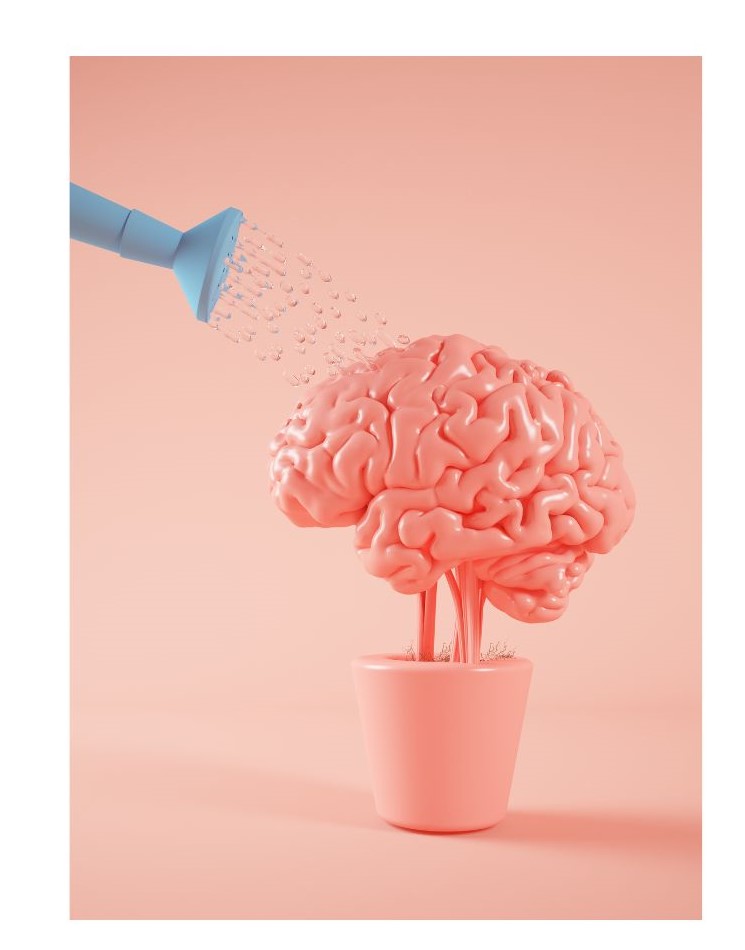Imagine waking up every morning feeling sluggish, unmotivated, and unable to concentrate. Unfortunately, this is a reality for many women struggling with low dopamine levels. But rather than try to cover up the problem with copious cups of coffee, the solution could lie in tackling another missing (and very vital) nutrient
In this article, we’ll explore the intricate relationship between dopamine and vitamin D, the symptoms of low dopamine, and how boosting your vitamin D levels could be a game-changer for your overall well-being. Let’s dive in.
Understanding Dopamine and Its Role in Your Body
Dopamine is a neurotransmitter often referred to as the “pleasure molecule.” It plays a crucial role in regulating mood, motivation, memory, and attention. It helps you feel pleasure, focus, and maintain a sense of well-being.
When your brain doesn’t get enough dopamine, either because it’s not producing enough or because you have low levels of dopamine receptors, you can experience a range of symptoms that can greatly impact your day-to-day life.
Symptoms of low dopamine include:
- Low energy and fatigue
- Lack of motivation and drive
- Difficulty concentrating
- Mood swings or low mood
- Inability to experience pleasure or feel satisfied
Related: Adrenal Fatigue Zaps Your Energy—Here’s How to Get It Back
Could Vitamin D Be the Missing Piece?
Vitamin D is often referred to as the “sunshine vitamin” because our bodies produce it when our skin is exposed to sunlight. But despite its name, vitamin D is actually a hormone that acts as a cofactor for over 200 genes in the body.
Among its many functions, vitamin D helps to promote the production and release of dopamine, which means that inadequate levels of vitamin D can lead to low dopamine levels.
Dopamine receptors are also more abundant in areas of the brain that are responsible for processing sensory information, such as sight and sound (1). Vitamin D helps maintain proper functioning of these receptors, ensuring clear communication between neurons.

Vitamin D and Low Dopamine Disorders
Studies have shown a correlation between vitamin D deficiency and disorders related to low dopamine, such as depression and seasonal affective disorder (SAD) (2). It’s believed that this is due to vitamin D’s impact on gene expression in the brain regions responsible for dopamine production and regulation.
Vitamin D deficiency has been linked to other neurological disorders that involve dopamine dysregulation, such as Parkinson’s disease and schizophrenia. While more research is needed in these areas, it’s clear that maintaining adequate levels of vitamin D is crucial for optimal brain health and function.
Read: More Protein, Less Depression in Women
Women with ADHD & Depression Often Don’t Have Adequate Vitamin D
New research suggests it’s no coincidence that women with ADHD and depression often have low levels of vitamin D. Studies that have looked at the link between vitamin D and cognitive health have found that:
- Children who have ADHD are more likely to have lower levels of vitamin D than those who don’t (3)
- Low Vitamin D is associated with increased ADHD symptom severity (4)
- Vitamin D deficiency can make it harder for the body to cope with stress, exacerbating mental health conditions like anxiety & depression (5)
Mental health issues can also lead to lifestyle habits that inhibit proper vitamin D production, creating a vicious cycle of worsening symptoms.
For example, individuals with ADHD may have trouble maintaining a healthy diet and getting enough exposure to sunlight, both of which are essential for vitamin D production. This can further exacerbate their dopamine deficiency and contribute to symptoms of depression.
Overall, about 40% of all people have lower than optimal levels of vitamin D. This deficiency is more common in individuals with darker skin tones, those who live in northern latitudes, and older adults.
Other Benefits of Vitamin D for Brain Health
Aside from its role in ADHD and depression, vitamin D has been found to have numerous other benefits for brain health. These include (6, 7):
- Supporting the production of neurotransmitters like serotonin, dopamine, and norepinephrine
- Protecting against age-related cognitive decline
- Reducing inflammation in the brain
- Regulating immune system function in the brain
How to Boost Dopamine & Vitamin D
Dietary Sources and Supplements

To boost your vitamin D levels, consider incorporating foods rich in this nutrient into your diet. Some excellent sources include:
- fatty fish like salmon
- fortified milk or cheese
- shiitake mushrooms
Getting enough vitamin D solely from food can be challenging, so supplementing with the right kind of vitamin D is helpful, especially during the winter months.
Sunlight Exposure
Sunlight exposure is one of the most natural ways to increase your vitamin D levels. Aim to spend at least 15-30 minutes in the sun each day, preferably during the morning hours to also help regulate your circadian rhythm.
Lifestyle Changes and Habits
Adopting a healthy lifestyle can also support dopamine production. Regular exercise, particularly high-intensity interval training (HIIT), can boost dopamine levels (8). Additionally, maintaining a balanced diet and getting enough sleep are crucial for overall brain health.
What to Remember
If you’re struggling with symptoms like lack of motivation, difficulty concentrating, or insomnia, it might be worth checking your vitamin D levels. Incorporating sunlight exposure, lifestyle changes, and vitamin D supplementation into your daily routine can have a positive impact on your brain health and overall well-being.


